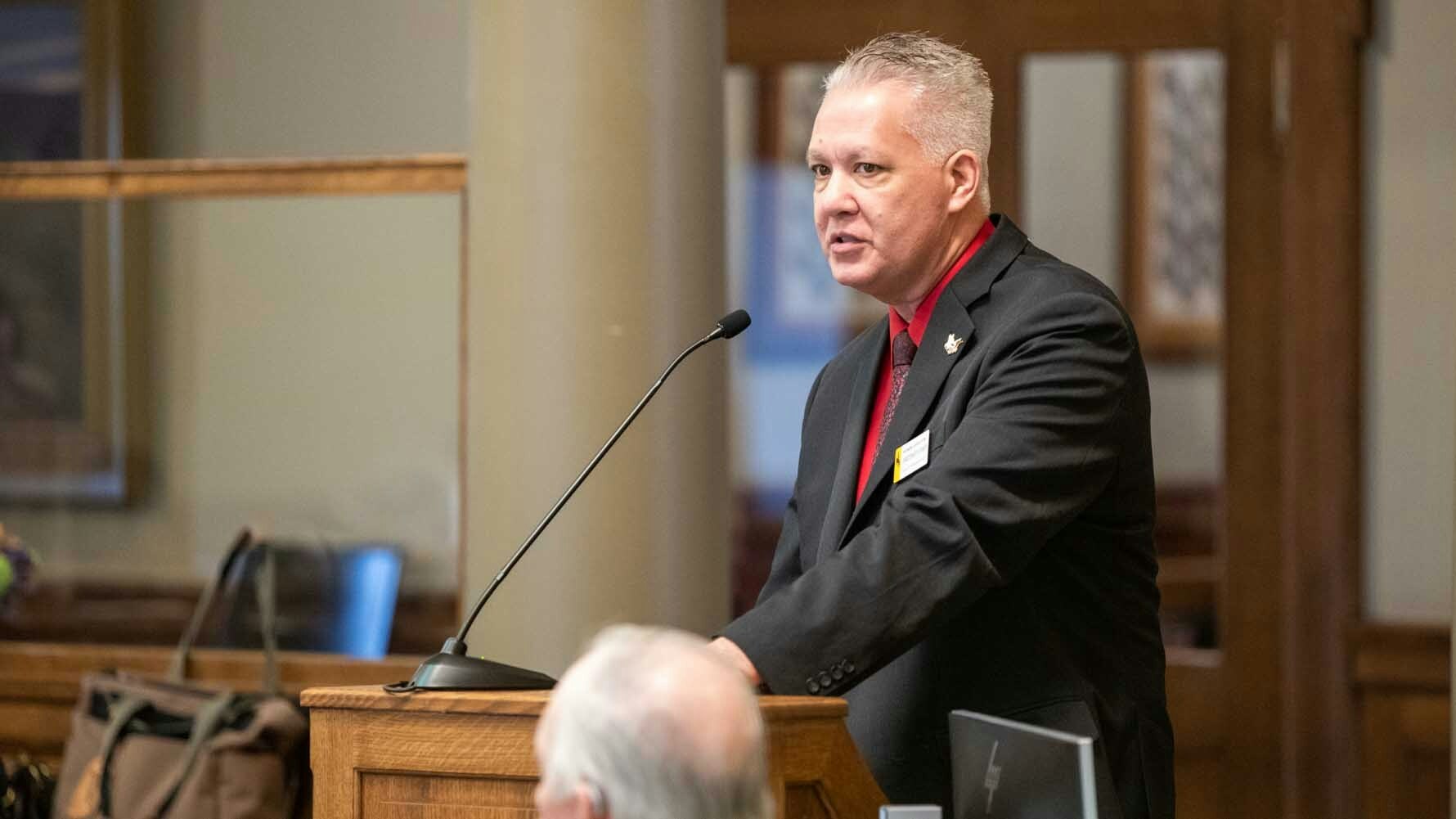A proposed Wyoming law geared toward making fewer sex offenders able to get their names off the sex offender registry died in the Senate Judiciary Committee on Monday after lawmakers said the bill’s language confused, rather than clarified, the issue.
Committee Chairman Sen. Bill Landen, R-Casper, said he wants to resurrect a better version of the bill in time for next year’s legislative session.
Bill sponsor Rep. Christopher Knapp, R-Gillette, said he intended for House Bill 90 to broaden the category of sex offenders in Wyoming who cannot petition a judge to be removed from the sex offender registry.
Knapp told the Senate Judiciary Committee during its Monday meeting that he brought the bill after hearing a constituent’s story of a family member who committed suicide after enduring sexual assault.
“Some (victims) don’t make it out from their childhood memories, or teen-hood memories, or adulthood memories,” said Knapp. “Some succumb to their attack.”
He said he’d like to see moms of young children especially have lifetime access to sex offense data on more offenders.
Despite the bill’s goal, the language contained what Cara Chambers, director of the Wyoming Division of Victim Services, called “loopholes.”
Chambers said the bill would change portions of the state Sex Offender Registry Act without conforming the rest of the act, such as parts of the law addressing out-of-state offenders.
“We’re not capturing everybody,” said Chambers.
She said the bill’s exceptions allowing some offenders to apply to be de-registered after 25 years would not apply to people who’d committed sex crimes outside Wyoming, then moved to the state.
“So we’re missing a swath of folks,” she said.
Knapp said he’d be pleased to fix any loopholes and would like to see the bill advance after that.
Judges ‘May’
Sen. Cale Case, R-Lander, who voted against the bill while voicing concerns that it didn’t capture the entire issue, said there’s already a provision in law that judges may – but don’t have to – deregister certain people after a time period of clean living outside of prison or jail.
“Do courts take that very seriously?” asked Case. “I would imagine they do … make a considered analysis of whether this person shall be relieved of registration or not. It’s not entered into lightly.”
Case said he’d like to see the committee explore whether, and to what extent, people who have been removed from the registry go on to commit sex crimes.
“That’s a stat I would like to know,” he said.
‘Too Important’
Landen agreed with Case, saying that the Judiciary Committee in the interim between legislative sessions should explore further the rates at which people reoffend and find ways to tighten the de-listing petition categories.
Sen. Ed Cooper, R-Ten Sleep, said he’s in favor of the concept but has concerns about the bill’s language.
“This is too important not to get right,” said Cooper.
Recidivism
Both Chambers and Knapp said recidivism, or re-offense rates, for the sex offender population are not encouraging.
Chambers said sex criminals reoffend at a rate of about 25%, but those are only the ones who get caught. Sex crimes, she said, are troublingly underreported. She said she sympathized with the intent of the bill, despite finding its language incongruent with the law.
Knapp, quoting a global study performed by the Quebec government, said sex offenders reoffend more often as time passes.
“None of us can understand (it), but typically it’s premeditated and it’s a constant thought,” he said.
Here’s Who Can’t Petition
Under Wyoming law now, convicted sex offenders can not apply to be taken off the sex offender registry if they:
• Have kidnapped a child
• Have raped or committed other kinds of sexual assault against someone younger than 14
• Had sex with someone younger than 13 over whom they held authority
• Had sex with someone younger than 13 when they were younger than 16, but the victim was at least three years younger than the perpetrator
• Have committed incest.
Less-severe categorized sex offenders, such as sexual abusers of older teens, can apply under current law to be deregistered from the sex offender registry after 10 or 25 years, depending on the severity of their offenses.
They would have retained that ability under HB 90, unless they’d been convicted of sexual assault. Sexual assault usually denotes rape: forced sex, sex with someone who’s been drugged, sex with someone with a mental illness; sex with someone who is incarcerated, who has been threatened or who is physically helpless.
Sexual abuse, however, typically involves age differentials and minors, but not the elements of force and coercion tied to sexual assault.





